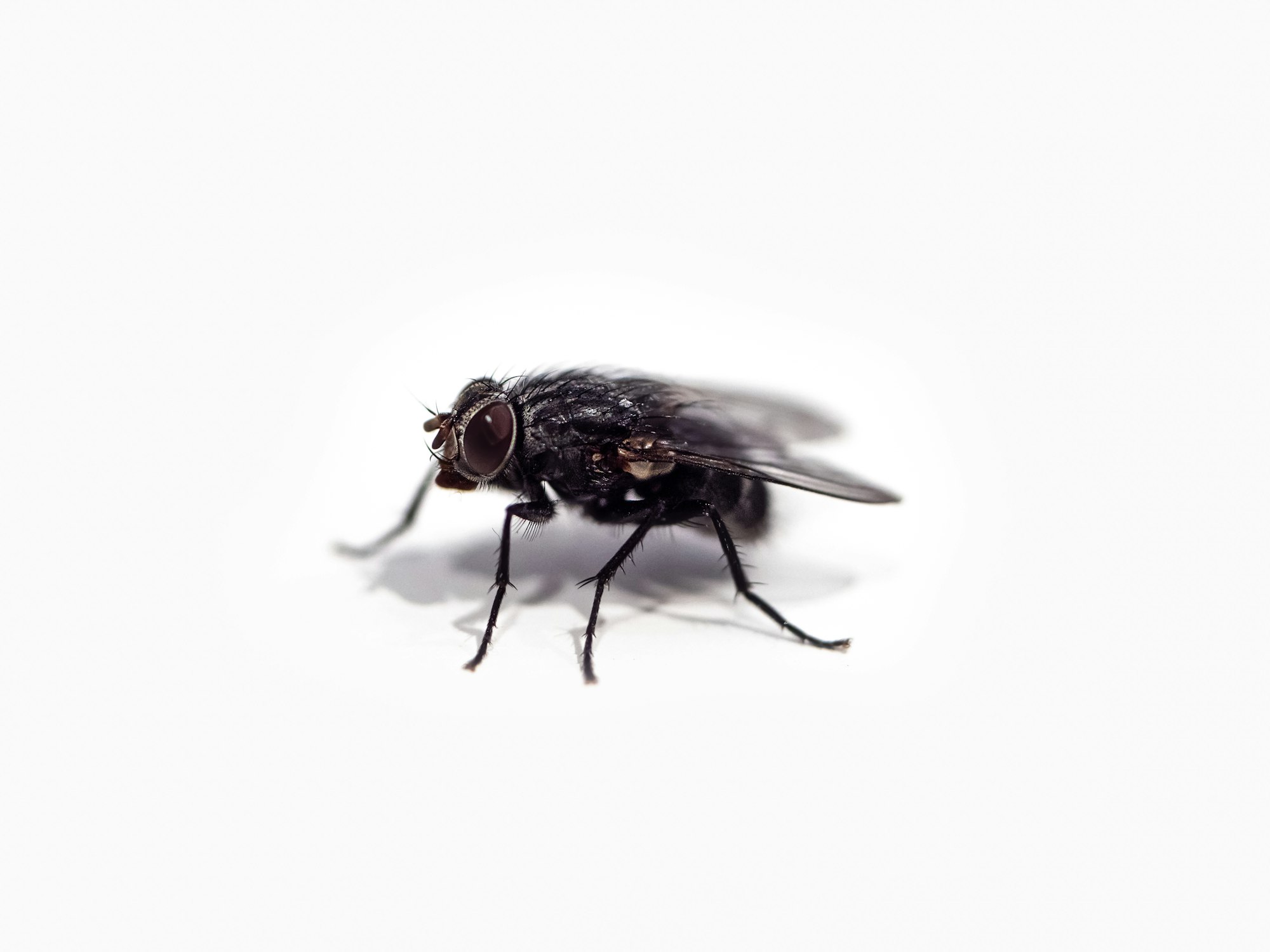Evidence suggests that microscopic microbes can influence attraction in fruit flies and mice, but what about humans? Keep reading to find out.
Table of contents:
- The human microbiome
- Fruit flies and gut feelings
- Mice, microbes and a fatal attraction
- Mind controlling microbes?
- Love at first sniff
- Takeaway
The human microbiome
You play host to a microscopic world on and inside your body, composed of bacteria, fungi, protozoa and archaea. Collectively, this is known as the human microbiome. Here at Atlas, we often talk about the gut microbiome, located in the large intestine, but you also have an oral, vaginal and skin microbiome as well.
This living, dynamic ecosystem has co-evolved with humans and exists symbiotically with us, meaning that whilst we shape our microbes, they can influence us also. For example, we now know that the gut microbiome communicates bi-directionally with the brain via the vagus nerve, potentially influencing our mood. Whilst human studies are severely lacking, it has been shown that transplanting the gut bugs of a depressed individual into mice can induce depressive symptoms.
In light of this, is it possible that the microbes on us and in us can also influence our love life? Let's take a look at the evidence:
☝Fun Fact☝ When humans kiss, they transfer roughly 80 million bacteria!
Fruit fly dating: it’s all about gut feelings

Attraction in fruit flies is not comparable to that in humans; as far as I know, none have written a sonnet to their lover! Nonetheless, animal studies can suggest avenues for research and help develop our understanding of the microbiome.
In one study, researchers reared two groups of fruit fly on different diets; one on starch and the other on molasses. The researchers then mixed the two groups into a mating chamber and patiently waited for the magic to happen (a normal day for grad students). Surprisingly, the flies only mated with those reared on the same diet as themselves. Talk about having a type!
The researchers gave the flies antibiotics to test whether the microbiome was responsible for these mating preferences, wiping out their gut bacteria. After antibiotics, the flies preferences disappeared, strongly suggesting that gut microbes modulate sexual selection in fruit flies. The mechanism for this phenomenon is not known, but the authors suggest that the microbiome might alter the levels of sex pheromones.
☝TIP☝ Discover the diversity and richness of your gut bugs with the Atlas Microbiome Test.
Toxoplasma Gondii: of mice and microbes
Toxoplasma Gondii (TG) is a protozoan parasite that can infect warm-blooded animals, including cats, humans and mice. Whilst many animals can be intermediate hosts, TG can only sexually reproduce in feline hosts. As many as 40 million Americans may have a latent infection, picked up through cat poop, undercooked meat, and soil, but infection is often asymptomatic in those with a healthy immune system.
With that said, toxoplasmosis can cause serious health issues in certain populations, namely pregnant women and those with a weakened immune system. If you have ever heard that pregnant women should not empty cat litter boxes, TG is why.
A fatal attraction

The idea that microbes could manipulate animal behaviour for their own selfish ends sounds more like a Hollywood horror than reality. But a group of researchers believe this is precisely what TG does. Let me explain.
Mice have developed an innate fear of cat urine over successive generations, a helpful instinct that increases their chance of survival. If you take a healthy mouse and expose it to cat urine, the rodent avoids the scent like the plague, even if it hasn't encountered a fearsome feline before.
Now, imagine if Jerry suddenly developed a fatal attraction to Tom, disregarding his instincts and running towards the predator's urine. I imagine it would lead to more than a few raised eyebrows.
Interestingly, some studies have reported that mice infected with toxoplasma gondii are particularly attracted to cat urine. Far from fleeing when faced with the scent, these infected critters exhibit curiosity when subjected to the perilous smell, increasing the chances of predation by cats. As we mentioned earlier, toxoplasma gondii can only reproduce in feline hosts, so kamikaze mice only serve to benefit the parasite.
The strange phenomenon has led some scientists to suggest that TG manipulates host behaviour to increase its chances of infecting cats. By doing so, the parasite can spread and multiply, completing its life cycle.
It wouldn't be the first time this behaviour was observed; ants infected by the cordyceps fungus become zombified, leaving their nest for a warm microclimate better suited to fungal growth. The ant bites down on a leaf whilst the fungus feeds on the ant inside out, ominously known as a death grip. The grand finale involves the fungus bursting from the dead ant and spreading spores far and wide.
There are a few theories about how the parasite might influence mice behaviour; some suggest it acts on the amygdala, down-regulating a fear response, whilst others propose the infection alters the mouse's limbic system, converting a fear response into an arousal response.
Interestingly, TG may also increase attractiveness in male rats by boosting testosterone production. An increase in production is also associated with a reduction in fear, presenting another possible method for the microbial manipulation of rats.
Others have contested whether infected mice are attracted to cat urine more than other predators. For example, one study reported that mice were more interested in fox and guinea pig urine than feline pee. Nonetheless, the study still demonstrated a reduced fear response in infected rodents, consistent with the manipulation hypothesis.
With that said, numerous studies have failed to show a link between TG infection and altered behaviour in rodents. A study published in 2020 concluded that the data is heterogeneous regarding the "manipulation hypothesis", meaning there is evidence both for and against the idea.
Based on these mixed findings, they concluded that the effects of T.Gondii are likely not universal in rodents, depending on genes and other variables. Despite this, the researchers acknowledge that some studies have established causative effects between TG and increased risk-taking in mice.
Mind controlling microbes?

Intrigued by this phenomenon, some have sought to discover whether the infection alters human behaviour also. Overall, the research is mixed, though some studies have reported interesting correlations between latent TG infection and human behaviour.
For example, a Turkish study found that those with TG antibodies were almost three times more likely to be in road traffic accidents. More concerning, others have reported increased alcohol consumption and even aggression in males and an increase in trust in women. This has led a few researchers to suggest that the parasite increases promiscuity in humans to ensure its own transmission, a parasitic cupid if you like.
Despite these interesting correlations, the evidence for the "manipulation hypothesis" is far less compelling in humans than in animal models. Unlike the rodent research, no causal link has been established between TG infection and behavioural changes so far. As for the studies mentioned, many of these are marred by limitations and lack multivariate analysis. What's more, as we all know, correlation does not mean causation!
Continuing, In a literature review published in 2020, researchers concluded that the available data on the manipulation hypothesis in humans is massively heterogeneous, meaning contradictory. The authors also noted limitations in the available studies, including small sample sizes and methodological flaws. The paper posed the question of whether T. Gondii's behavioural impact is the result of media hype, and their conclusions seem to answer that it is.
Likewise, a 2016 cohort study found little if any evidence for an increased risk of psychiatric disorder, poor impulse control, personality aberrations or neurocognitive impairment in those with TG. Considering some estimate as many as one thirds of us carry the infection, this is good news for all!
Based on the existing literature, it is impossible to make any conclusive statements about the manipulation hypothesis in humans, though the accumulated research suggests T.Gondii likely has a subtle effect on human behaviour- a far cry from alarmist headlines that warn of mind-controlling microbes. In other words, we are not simply marionettes controlled by microbes (cue sigh of relief). This doesn't mean the parasite is harmless, though; in pregnant women, it can lead to birth defects, for example.
==☝Did You Know☝ Some scientists have suggested that kissing is a crude form of vaccination used to acquire potentially harmful pathogens before pregnancy. ==
Love at first sniff

According to legend, Napoleon once wrote to his wife, "Josephine, I am coming home. Don't wash". As it turns out, our microbes might be able to shed some light on the Emperors rather strange request.
In a classic Swiss study conducted by the Royal Society Of Biological Sciences, a group of women were given unwashed t-shirts worn by men and asked to choose the most attractive scent.
Opposites attract
Intriguingly, the female participants were drawn to the smell of t-shirts belonging to those with pathogen-recognising genes that differed from their own. In short, we all possess pathogen-recognising HLA genes, something we acquire throughout our lifetime as we encounter infectious intruders. These genes are like biological memories which can help us fight pathogens we have already experienced.
The results make a lot of sense from an evolutionary standpoint, as a mixture of PR genes would confer greater immunity to the couple's offspring. For this reason, couples whose PR genes differ from one another have more reproductive success, including fewer miscarriages. Of course, we don't choose a partner solely, or even in part, on their musk, but it’s interesting to discover this subtle biological cue nonetheless.
Researchers are unsure how the women detected the genes through scent, though one suggestion is that PR genes alter the bacteria which produce our unique musk.
☝Fun Fact☝ Human sweat doesn't have a smell. BO is the result of bacteria feeding on your sweat.
Takeaway
Microbes seem to play an important role in sexual selection in the animal kingdom; whether it is fruit flies picking mates with a similar microbiome or mice gaining sex appeal from parasites, these little cupids subtly assert their influence.
When it comes to humans, the story is a little more complicated, mainly because our courtship is more advanced than fruit flies and mice; it takes more than liking the same meal or having enlarged testicles to fall for someone. At least, I hope it does.
Ultimately, attraction is a complex phenomenon influenced by multiple factors. Among these, it is interesting to know the microbes on and within us may play a small part, such as wafting our PR genes to potential mates. Tip your hat to your microbial wingmen next time you catch a whiff of yourself!
☝️DISCLAIMER☝This article is for informational purposes only. It is not intended to constitute or be a substitute for professional medical advice, diagnosis, or treatment.
















